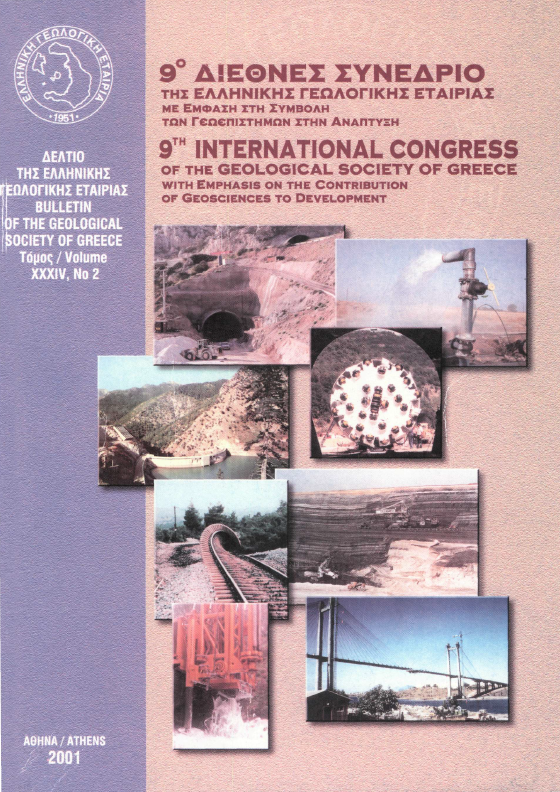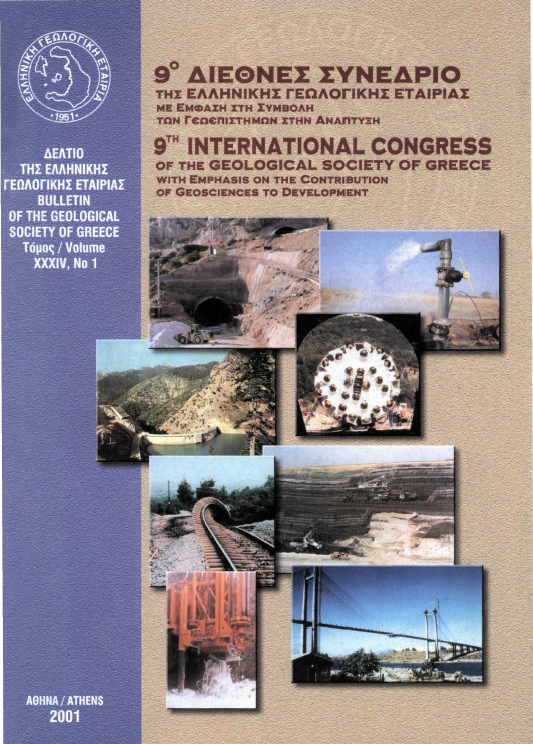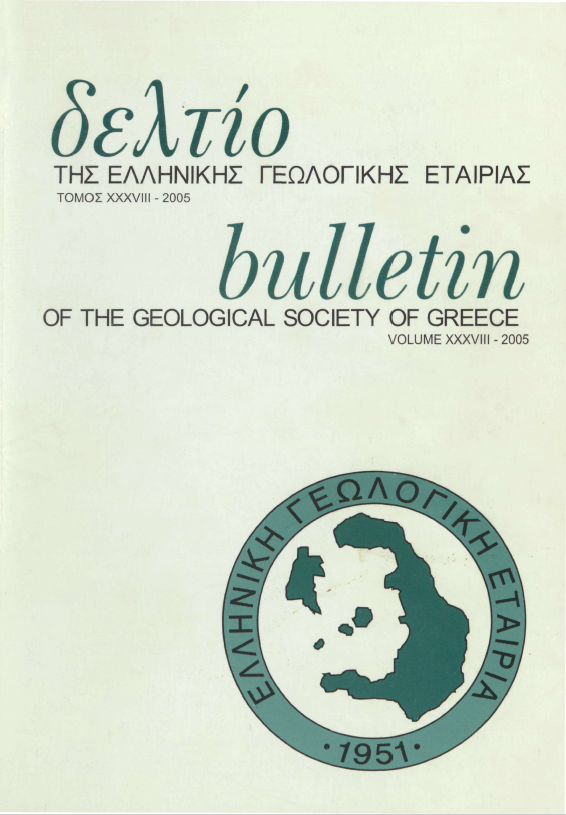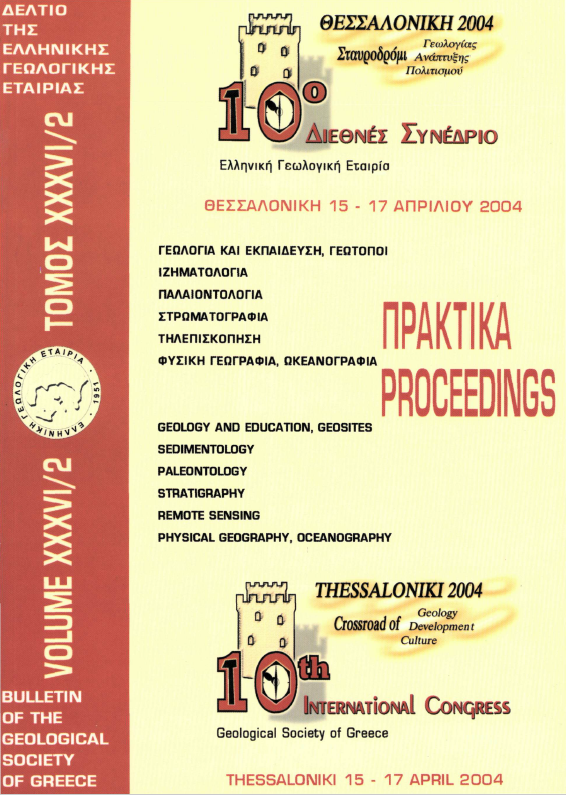Study of the coastal sediments of the Loutraki gulf area
Résumé
The study of the sedimentological and mineralogical characteristics of the coastal sediments in the Loutraki gulf, included analyses of a large number of samples, that is granulometry, thin section study and x-ray examination. From these data the granulometry paramètres were assessed such as mean grain size, standard deviation σ, skewness SK, and kurtosis KG of the sediments. The study of the sedimentological parameters based on the mean grain size the offshoreline is covered by coarse grain sand, whereas the tidal zone indicates a high energy environment. The longshoredrift is from Ν to S. Most of the sand is loosely graded in the nearschore area, medium graded in the foreshore area and well graded in the backshore area. Their constant declination indicates a trend for a better gradation of sediments southwards. The latter combined with the mean grain size indicate a reduction of kinetic energy from Ν to S. In addition, the beachrocks, were studied together with their, elevation and their mineral composition .
Article Details
- Comment citer
-
ΚΑΡΑΛΗ-ΒΟΥΔΟΥΡΗ Α., ΛΕΙΒΑΔΙΤΗΣ Γ., & ΜΕΤΤΟΣ A. (2018). Study of the coastal sediments of the Loutraki gulf area. Bulletin of the Geological Society of Greece, 34(2), 717–724. https://doi.org/10.12681/bgsg.17348
- Rubrique
- Sedimentology

Ce travail est disponible sous licence Creative Commons Attribution - Pas d’Utilisation Commerciale 4.0 International.
Authors who publish with this journal agree to the following terms:
Authors retain copyright and grant the journal right of first publication with the work simultaneously licensed under a Creative Commons Attribution Non-Commercial License that allows others to share the work with an acknowledgement of the work's authorship and initial publication in this journal.
Authors are able to enter into separate, additional contractual arrangements for the non-exclusive distribution of the journal's published version of the work (e.g. post it to an institutional repository or publish it in a book), with an acknowledgement of its initial publication in this journal. Authors are permitted and encouraged to post their work online (preferably in institutional repositories or on their website) prior to and during the submission process, as it can lead to productive exchanges, as well as earlier and greater citation of published work.






